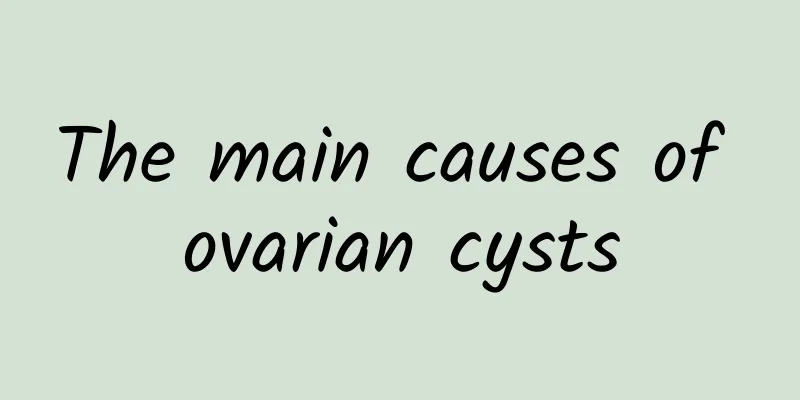Why does edema occur? Does edema mean kidney problems? The answer is…

|
A while ago, I went to a coffee shop to type a manuscript and have breakfast in the morning. I heard a group of ladies chatting at the next table. One of them mentioned that she was prone to edema recently, so she had an appointment to see a doctor later...Then I heard her friends offering their opinions: A said it must be kidney disease, B said that one of her friends had the same problem and was later diagnosed with XX disease, C began to teach her what to do, what not to eat and what to eat...Is edema really caused by kidney disease? What should I eat when I have edema? Should I limit my water intake? (Situational picture/provided) Edema can occur throughout the body, the most common sites of which are the extremities, such as the arms, hands, legs, ankles, and soles of the feet. Just like constipation and anemia, edema is just a physiological phenomenon. Many reasons can cause edema, such as eating too much salty food, lack of exercise, protein malnutrition, menstrual period, premenstrual syndrome, taking certain medications, receiving certain treatments, or suffering from certain diseases. [Decoding edema] Why does edema occur? Does edema mean kidney problems? (Photo courtesy of nutritionist Stella's weight loss and nutrition blog) So, how do we judge whether edema is a physiological phenomenon that does not require concern, or is something that we should be worried about and may be a sign of certain diseases? Basically, edema caused by non-disease factors such as physical constitution and diet is mostly a temporary phenomenon and the degree of edema is relatively mild. It can usually be improved by adjusting diet, lifestyle, or removing the cause. Edema caused by the disease is generally more serious and long-term, and in addition to edema, it is also accompanied by other abnormalities (such as foamy urine, or jaundice, ascites, difficulty breathing, etc.) [see attached figure]. (Photo courtesy of nutritionist Stella's weight loss and nutrition blog) Therefore, when edema occurs, you can initially filter whether it is caused by a disease or is just a physiological phenomenon that does not require concern. If it is caused by a disease, you should seek further medical attention to find out the cause of the edema in order to treat it symptomatically. Although some diseases such as kidney disease and heart disease can also cause edema, most of the edema we often hear about is actually caused by non-disease factors. In other words, edema is not mostly caused by kidney disease. Therefore, when edema occurs, you can initially filter whether it is caused by a disease or is just a physiological phenomenon that does not require concern. If it is caused by a disease, you should seek further medical attention to find out the cause of the edema in order to treat it symptomatically. When you have edema, how should you adjust your diet and lifestyle? Although there are many causes of edema, most people's edema is physiological edema, which can be improved or prevented through the following diet and lifestyle suggestions: 1. Diet: limit sodium, increase potassium, pay attention to whether protein intake is sufficient and anemia problems.
2. Exercise more: Long-term inactivity (such as sitting or standing for a long time) will affect the blood circulation in the lower limbs, causing water to be unable to return smoothly and accumulate in the lower limbs. Exercise can promote lymphatic circulation and thus improve lower limb edema caused by poor circulation. Walking, jogging, swimming, cycling, etc. are all good choices. 3. Others: such as raising the affected limb (higher than the heart) to promote blood return to the lower limbs; avoid sitting or standing for long periods of time. If you need to stand for a long time at work, you can wear elastic stockings to apply appropriate pressure on the legs to help blood return to the lower limbs. In addition, it is best not to wear high heels, tight shoes, or tight clothing such as corsets or waist binders for a long time to avoid affecting blood circulation in the lower limbs. [FAQ] Do I need to limit water intake due to edema? (Situational picture/provided) Edema has nothing to do with water intake, but is caused by the abnormal accumulation of interstitial fluid. About 40% of the body's water is distributed in the extracellular fluid, of which 2/3 is located in the interstitial space. Since the regulation of total blood volume is important for cardiac output and blood pressure, the body uses multiple mechanisms to regulate the fluid between capillaries and tissues. When this regulation is out of balance, edema occurs. (Photo courtesy of nutritionist Stella's weight loss and nutrition blog) Therefore, edema is related to the body's abnormal regulation of interstitial fluid and has nothing to do with the amount of water consumed. Among the many causes of edema, none of them is caused by drinking too much water. Therefore, there is no need to restrict water intake when edema occurs. A normal person drinking two to three thousand milliliters of water a day will not cause edema. On the contrary, it is common for edema to occur due to water retention in the body caused by eating too salty food and excessive sodium in the body. At this time, you should drink more water to help the body excrete sodium. In other words, the most important key to edema is sodium restriction, not water restriction. This article comes from: Nutritionist Stella's Weight Loss & Nutrition Blog ※For more information, please see "Nutritionist Stella's Weight Loss & Nutrition Blog" |
Recommend
Which hospital is better for treating uterine effusion?
Which hospital is better to go to for uterine eff...
What to do if the pain from Bartholinitis subsides?
If pain is still felt after the swelling of Barth...
Symptoms of uterine fibroids can be seen from the compression symptoms
We can see the symptoms of uterine fibroids from ...
Girls want to develop perfect abdominal muscles? Practice these 3 tricks to easily get
Since women have more body fat, it is much more d...
What are the dangers of vulvar leukoplakia
What are the hazards of vulvar leukoplakia? Since...
Submucosal uterine fibroids should be taken seriously
As the number of patients with uterine fibroids i...
How does traditional Chinese medicine treat female cervical erosion? How does traditional Chinese medicine treat female cervical erosion?
Nowadays, many women who suffer from cervical ero...
The weather is cold, be careful of hypoxic obesity! Famous weight loss doctor: This trick is the nemesis
The weather is freezing cold, be careful of hypox...
How do you get multiple uterine fibroids? What are the dangers of multiple uterine fibroids?
Are multiple uterine fibroids uterine fibroids? S...
How to regulate irregular menstruation after childbirth 5 tips to deal with irregular menstruation
What should I do if I have irregular menstruation...
What are the symptoms of premature ovarian failure?
What are the symptoms of premature ovarian failur...
What should I do if my fallopian tube is blocked and my menstruation does not come?
What should I do if my fallopian tube is blocked ...
Will taking Sanjin aggravate candidal vaginitis?
Will taking Sanjin aggravate candidal vaginitis? ...
Severe early symptoms of ovarian cysts in women can lead to infertility
The early symptoms of female ovarian cysts have a...
What are the symptoms of postmenopause in women?
It is necessary to grasp the most common symptoms...









